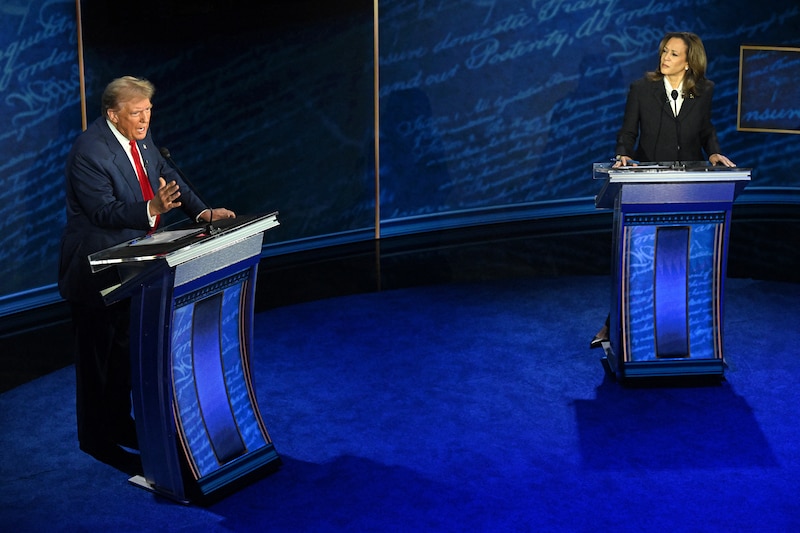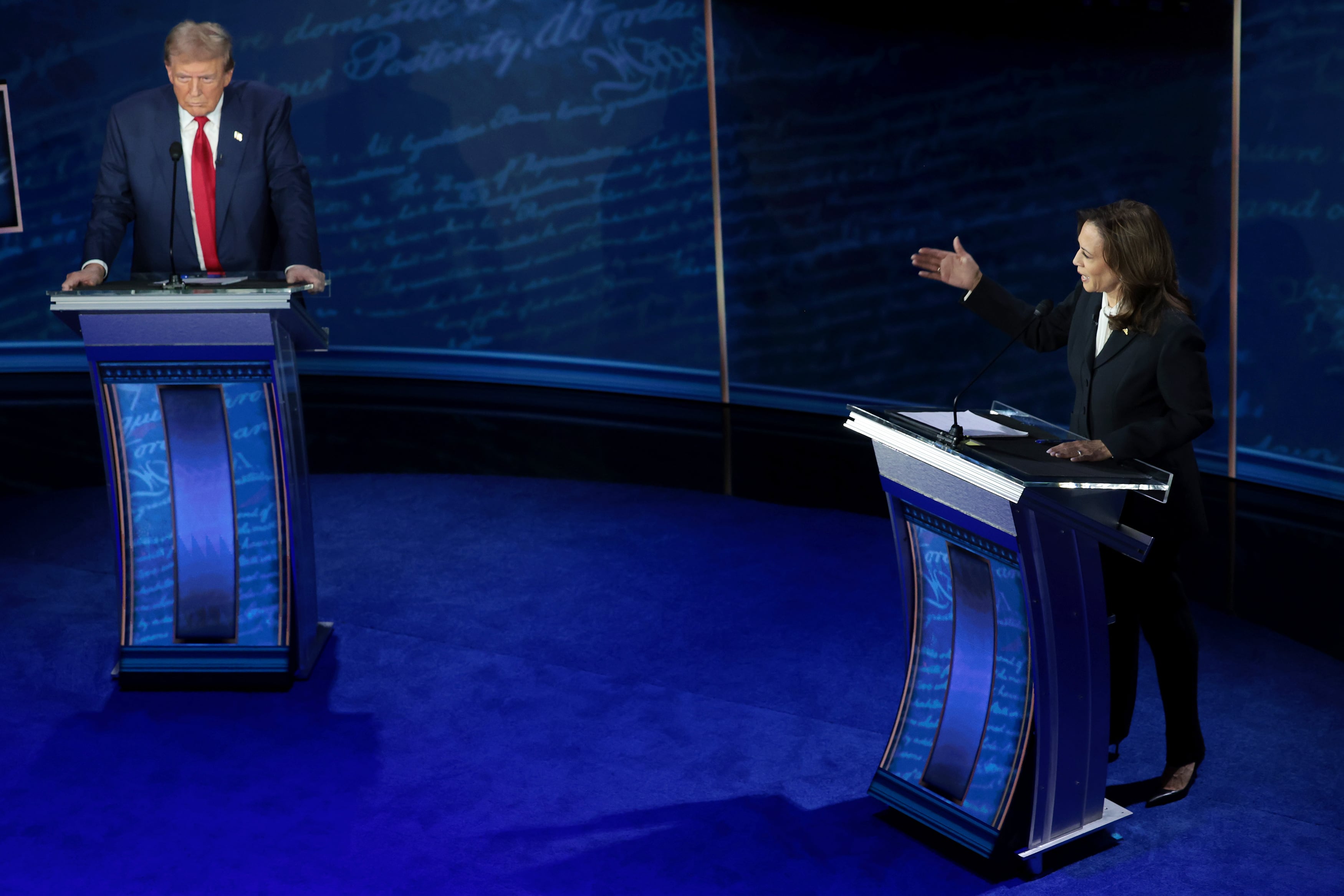Sign up for Chalkbeat’s free weekly newsletter to keep up with how education is changing across the U.S.
The first and perhaps only presidential debate between Vice President Kamala Harris and former President Donald Trump did not include any discussion of the ongoing struggles of American students to recover from pandemic disruptions. It did not include any discussion of how to make American schools safer. It did not include any conversation about how to control the cost of college or ensure students are prepared for well-paying jobs.
The more than 90-minute debate hosted by ABC News saw Harris repeatedly press Trump on abortion rights, his relationships with dictators, and his authoritarian tendencies. Trump injected anti-immigrant rhetoric in response to questions on numerous other topics, repeating false claims that newcomers to the country are eating household pets.
But Trump did not bring up his promise to eliminate the U.S. Department of Education or repeat his false claim made recently to the conservative parent group Moms for Liberty that schools are performing gender surgeries on children. Harris did not discuss her promises to protect LGBTQ students or make college more affordable.
One of the few mentions of a policy that would affect children came in the opening minutes of the debate, when a moderator asked Harris about whether the economy is doing better now than four years ago. Harris did not directly answer the question. But in response, she drew attention to her proposal to expand the child tax credit and boost it to $6,000 for kids age 1 and under.
Harris previously proposed reinstating a pandemic-era policy that reached many more low-income families and boosted the credit from $2,000 to as much as $3,600 per child, depending on their age.
Related: A bigger child tax credit could help students a lot. Will Harris or Trump make it happen?
In 2021, those payments helped cut child poverty nearly in half, and reduced child hunger and housing instability — all of which can have negative effects on kids’ schooling. Trump did not mention the policy, though his campaign has said he would consider raising the credit for families of all income levels.
“We know that young families need support to raise their children,” Harris said. A bigger credit would ensure “young families can afford to buy a crib, buy a car seat, buy clothes for their children.”

Trump drew attention to the Biden administration’s troubled student loan forgiveness efforts in response to a question about abortion rights. Harris has touted improvements to the public service loan forgiveness program in speeches to teachers and pledged to do more.
Trump brought up the issue after being asked if he would veto a national abortion ban. Trump said he wouldn’t have to, apparently because Congress would be too divided, then pivoted to say Harris would be unable to pass federal abortion protections, just as some of President Joe Biden’s loan forgiveness plans have been blocked in the courts.
“She can’t get the vote,” he said. “She won’t even come close to it. So it’s just talk. You know what it reminds me of? When they said they’re going to get student loans terminated, and it ended up being a total catastrophe, the student loans. And then her, I think probably her boss, if you call him a boss, he spends all this time on the beach.
“But look, her boss went out and said, ‘We’ll do it again. We’ll do it a different way.’ He went out and got rejected again by the Supreme Court. So all these students got taunted with this whole thing about this whole idea and how unfair that would have been.”
Kalyn Belsha is a senior national education reporter based in Chicago. Contact her at kbelsha@chalkbeat.org.
Erica Meltzer is Chalkbeat’s national editor based in Colorado. Contact Erica at emeltzer@chalkbeat.org.






